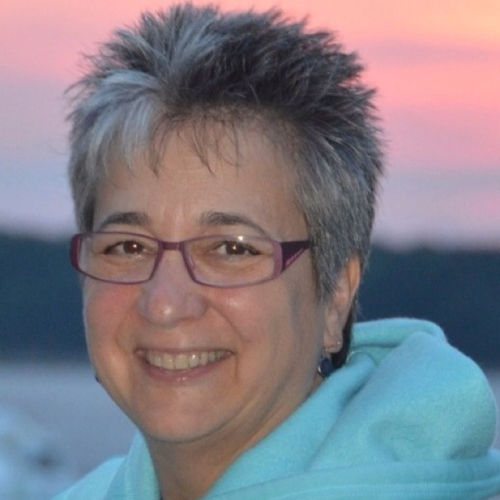Artificial Intelligence
Amy A. Pitter – 2017 Most Powerful Women in Accounting Honoree
Nov. 15, 2017

Amy A. Pitter – 2017 Most Powerful Women in Accounting Honoree
Employer: Massachusetts Society of Certified Public Accountants, Inc.
Title: President & CEO
Website URL: mscpaonline.org
Twitter: @amypitter
Education (Degree/school): Bachelor’s/Connecticut College, Master’s in Accounting/Northeastern University, JD/New England School of Law
What opportunities do you feel women in accounting have now that they didn’t have when you started in the profession?
The opportunities are night and day. When I started in 1979, we were on our own. Now there are increasingly more successful women who are encouraging, mentoring and sponsoring other women as they progress in their careers. They’re making it a priority to give back – and pay it forward to those who paved the way for them.
There’s also been a shift in leadership and work culture. We now have a woman leading a Big Four firm, and two of our largest regional firms are managed by women. On a cultural level, firm leaders are recognizing that flexible work arrangements are important to keep and motivate all staff. With flexibility available to everyone, women are no longer singled out, and it evens the playing field. In a competitive job market, this is a big deal.
How important is work/life balance and what suggestions do you have for those who are struggling to attain this?
Accountants are the hardest working people I know. However in this profession, it is way too easy to burnout. We’re seeing a trend of people leaving Big 4 accounting firms for private companies, rather than for another firm – and the top reason for their exit is workload and stress. Burnout is a no-win situation; it’s not good for individuals or their employers – but it is avoidable.
To the employee on the brink of a burnout: be clear about what you need. Most employers would rather address issues of work/ life balance with a valued employee than lose them. Secondly, make time for your personal development. Get involved with your State Society, work on a committee and learn to network. Oftentimes that change of pace will refresh you (both professionally and personally) and rejuvenate your career.
What is the most difficult part about being a woman in the accounting profession?
The glass ceiling needs some work. Women enrolled in accounting programs and entry level positions are the slight majority, but those numbers decline among senior leadership. We need to push harder to find sponsors, take risks and break into the executive ranks.
What is the best part about being a woman in the accounting profession?
Because the profession is growing and changing so much and so quickly, there is a ton of opportunity for young staff. Our profession also increasingly understands the business case for diversity and is working hard to develop environments that are inclusive of women, people of color and the LGBTQ community. The energy around this movement is palpable, and it’s exciting to be part of it.
How do you see yourself participating in shaping the future of the accounting profession?
Change only happens if you work towards it every day. As CEO of the Massachusetts Society of CPAs, I’ve made it a priority to do my part to shape the profession for future generations, and it starts with diversity. Minority business owners are on the rise – there’s been a 38% increase in minority-owned businesses since 2007 – yet minorities represent only one in six professionals at accounting firms nationwide. As an industry, we desperately need this statistic to change. In Massachusetts, we’ve established two programs to educate and engage with minority students about opportunities available within the accounting profession, and we spend time in low-income school districts meeting with students, and bringing awareness to the accounting industry. We’ve also developed diversity scholarships for students who are pursuing accounting degrees. There’s always more to be done, and we’ll continue to develop these initiatives in the years ahead.
I’m also focused on bringing awareness to firm leaders and to academics of the massive changes and disruption to the profession. Some have begun, while others are underway and are fueled by robotics, artificial intelligence and Blockchain technologies. As these technologies emerge and become the norm, State Societies will need to step up to help our members adapt to these changes. We’re ready for the challenge – it’s a wonderful time to be in the profession!
Looking back at your career, what would you do differently given the knowledge you have today and how can women who are entering the benefit from that knowledge?
Two things come to mind. First, I would have tried harder to find sponsors – someone to open the door for me. I think there is a misconception that sponsors have to be the same race, ethnicity or gender as the person being sponsored. While it’s often the case, it doesn’t have to be, and sponsors can make all the difference in your career. I finally did find sponsors – mostly men, but not early in my career. The second thing I would have done was to have made sure my voice was heard. I think that is still a challenge for women.
Please share any other comments or insights you would like to share with our readers about what has driven you to be a person who is recognized as a leader in this profession.
It’s not so much about being recognized as it is about giving a voice to the profession. Leaders are built through a series of experiences, circumstances and struggles. Every day I talk with our members about their challenges, and it’s my job to be their advocate. We work to help them find solutions so they can prosper in the profession and build successful practices. In the end, we’re all on the same team.
Learn more about the 2017 Most Powerful Women in Accounting.
